



Recruiting firm specializing in identifying and placing former athletes and passive & active job-seekers into new careers throughout the U.S.
-% از دنبال کنندگان @nexgoal اش خانم هستند و -% آنها اقایند. نرخ درگیری میان نوشتهها حدود 0.89٪ است. میانگین تعداد پسندیده شدن در هر نوشته 23 است و تعداد متوسط نظرات 4.
@nexgoal دوست دارد درباره این موضوعها پست بگذاردآموزش.

2,833
دنبالکنندگان

0.89%
نرخ درگیری

27
درگیری در هر نوشته
23
متوسط پسندیده شدن در هر نوشته
4
متوسط نظرات در هر نوشته

-
رتبه جهانی

-
رتبه کشور

-
رتبه دستهبندی
رشد دنبال کننده ها و پست ها
روند رشد نرخ درگیری
جنسیت مخاطبین

گروه سنی هدف
علاقهها

اشاره به - حسابها
اشاره به - هشتگ ها
1
1
1
1
1
1
1
1
نرخ درگیری
پسندیده شدن و نظرات
تاثیرگذاران قابل توجه
علایق برند مخاطبان
حسابهای مشابه




پست های اخیر
* کپی رایت: صاحبان محتوای خلق کنندگان استاندارد است. این اطلاعات، از جمله تصاویر، متنها، ویدیوها، نوشتهها و پروفایلها برای دید عموم فراهم شده اند و در دامنههای عمومی و رسانههای اجتماعی متناظر منتشر شده است.
FAQ: آمار و اطلاعات Instagram برای @nexgoal
چگونه می توانم آمار و تجزیه و تحلیل پلتفرم Instagram برای @nexgoal را مشاهده کنم؟
Starnage گزارشهای آماری جامعی را ارائه می دهد که شما نیاز دارید تا درک کاملی از @nexgoal را داشته باشید. شما می توانید بخش های مختلفی را بررسی کنید، از جمله آمار دنبال کننده های پلتفرم Instagram مانند روند رشد دنبال کننده و نوشته ها، نرخ درگیری و رشد آن. به علاوه، شما می توانید به اطلاعات در مورد تعداد متوسط پسندیده شدن و نظرات در هر نوشته، آمارها درباره دموگرافی دنبال کنندگان یا مخاطبان شما، داده های ارتباطی با برند، اشاره کردن به هشتگ های مربوط، حساب های مشابه و جدیدترین پست ها دسترسی پیدا کنید.
چه شمارنده فالوئری برای @nexgoal در پلتفرم Instagram وجود دارد؟
به روز رسانی جدید، @nexgoal تاکنون با حسابی حاصل از گوش دادن شوندگان تعداد 2,833 فالوور در پلتفرم Instagram گردآوری کرده است.
چه روش ها و تجزیه و تحلیل هایی در صدای @nexgoal در Instagram شامل می شوند؟
گزارش آماری کامل ما تکمیل و جامع برای @nexgoal روی Instagram ارائه می دهد. این گزارش شامل اطلاعات مفصلی درباره رشد دنبال کننده ها در طول زمان، آمار درگیری و فرکانس پست، به طور هفتگی و ماهانه می باشد. برای دسترسی به این گزارش عمیق، لطفا ثبت نام کنید و یک حساب جدید StarNgage ایجاد کنید یا به حساب موجود خود وارد شوید.
آیا می توانم پیگیری کنم که چگونه نرخ درگیری صوتی @nexgoal در Instagram تکامل یافته است؟
بله، ابزارهای تجزیه و تحلیل StarNgage به شما امکان می دهد تا تکامل نرخ درگیری صوتی @nexgoal را در طول زمان در Instagram ردیابی کنید. این داده ها به شما کمک می کند تا ارزیابی کنید که استراتژی های درگیری صوتی @nexgoal چقدر موثر هستند.
چگونه درک تماس های خالص مخاطبین صوتی @nexgoal روی Instagram به کمک ما می تواند کمک کند؟
بدست آوردن تجربه از دموگرافی مخاطبین صوتی @nexgoal در Instagram است که بسیار ارزشمند است. این اطلاعات به شما امکان می دهد تا استراتژی های بازاریابی و محتوا را برای ضربه گیری به راحتی با دنبال کنندگان @nexgoal تنظیم کنید و می توانید در مورد سن، جنسیت، محل زندگی و علاقه های آنها اطلاعات داشته باشید.
چگونه می توانم از داده های نوع برند استفاده کنم تا استراتژی بازاریابی خود را روی Instagram با @nexgoal بهبود ببخشم؟
اطلاعات پیدا شده از نوع برند می تواند ابزار قدرتمندی برای درک این باشد که مخاطبان شما بیشترین علاقه را به چه برندها و محصولاتی دارند. این اطلاعات می تواند راهنمایی کننده ای برای همکاری ها و شراکت های حاشیه ای با <no value> روی Instagram باشد و در نتیجه درگیری با مخاطبین هدف خود را پیشرفت بدهید.




















